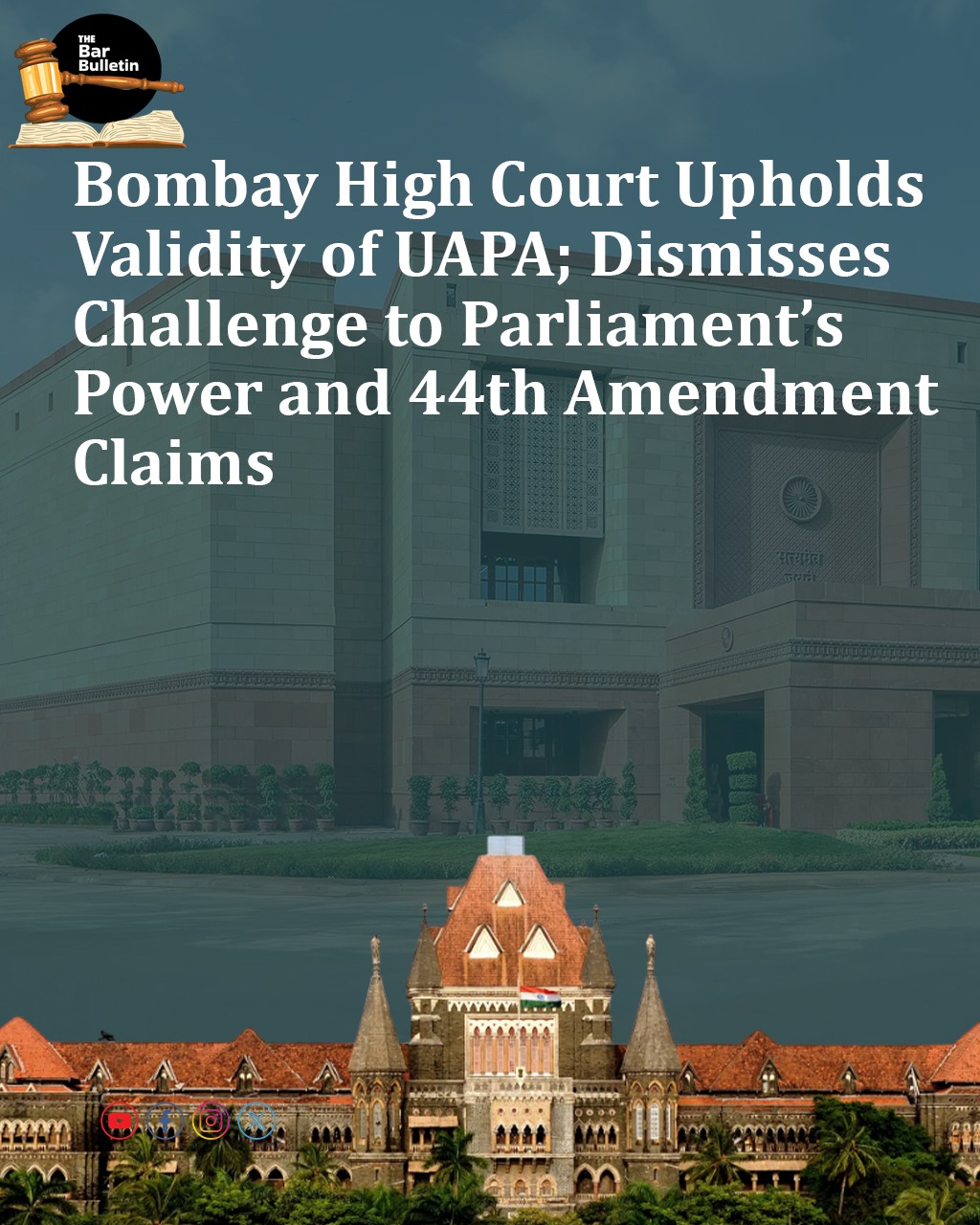The Bombay High Court dismissed a writ petition challenging the vires of the Unlawful Activities (Prevention) Act, 1967 (UAPA), holding that the law is still enforced under the current constitutional setup. It clarified that the UAPA is a penal statute designed to combat illegal and terrorist activities rather than a preventive detention law in the traditional sense. As for the challenge to Section 124A of the IPC (sedition), the Court didn’t go into it since the matter is already being heard by the Supreme Court.
A Division Bench comprising Justices A.S. Gadkari and Dr. Neela Gokhale observed that UAPA essentially and substantially contains penal provisions for committing offenses specified under the Act. The word ‘Prevention’ appearing in the title of the enactment relates to prevention of unlawful activities and does not substantially vest precautionary power of preventive detention in any authority under the Act. It further held that powers under the Act relate to prevention of and coping with terrorist activities. However, these powers contemplate the freezing, seizure or attachment of funds, financial assets or economic resources of persons engaged in or suspected to be engaged in terrorism and not preventive detention of a person.
The petitioner argued that the UAPA does not contain any provision declaring the date on which it comes into force and that the power to bring the Act into effect by the Executive is entirely absent from the statute. He also contended that the 44th Constitutional Amendment rendered preventive detention laws inapplicable, as the amended clauses (4) and (7) of Article 22 has not yet been notified. According to him, several provisions of the UAPA overlap with the IPC and lack clarity, and Parliament lacks the legislative competence to enact such a law under the current constitutional scheme.
The Court however rejected the petitioner’s claim and held that there is always a presumption in favour of the constitutionality of a statute, and the burden lies on the person challenging it to show a clear violation of constitutional principles. Referring to R.K. Garg v. Union of India [1]. And Kesavananda Bharati Sripadagalvaru V. State of Kerala [2], the Court observed that “the judiciary should presume statutes enacted by the legislature to be constitutional unless the law is clearly unconstitutional or a fundamental right is implicated.”
It further held that even if the UAPA is assumed to touch upon preventive detention, Parliament has the legislative competence to make such laws under Entry 9 of List I and Entry 3 of List III of the Constitution. The Court concluded that “so long as it does not violate any condition or restriction placed by the Constitution, the Court cannot invalidate that law on the specious ground that it is calculated to interfere with the liberties of the people.
Accordingly, the Bombay High Court upheld the UAPA’s constitutional validity, stating that the act came into force upon receiving Presidential assent and does not violate any constitutional provision. The petition was dismissed.
Appearances:
Petitioner:Mr. Prakash Ambedkar with Mr. Sandesh More, Mr. Hemant Ghadigaonkar, Mr. Hitendra Gandhi, Mr. Nikhil Kamble and Mr. Siddharth Herode for the Petitioner.
Respondents:Mr. Devang Vyas and Mr. Anil Singh, Additional Solicitor Generals of India with Mr. Sandesh Patil, Mr. Chintan Shah, Mr. Sheelang Shah, Mr. Prithviraj Gole, Ms. Anusha Amin & Mr. Jalaj Prakash for the Respondent Nos. 1 to 5.
Mr. A. S. Shalgaonkar, APP, for the Respondent No.6-State.
[1] (1973) 4 SCC 225.
[2] (1981) 4 SCC 675.
![]()



